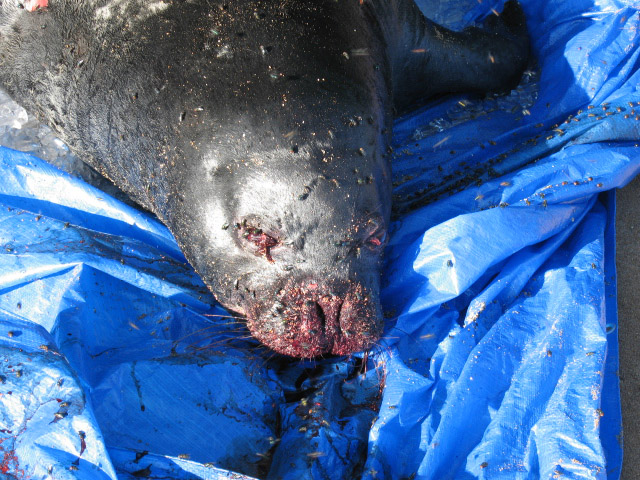Wednesday, February 3rd, 2010
.jpg)
In the wake of St. Damien’s canonization last October, the focus in Kalaupapa has shifted from the settlement’s past to its future. With an aging population of surviving Hansen’s disease patients, the state is in the process of deciding what will happen to the land when patients no longer live there.
Senator Kalani English and Senate President Colleen Hanabusa introduced a bill last week that, if passed, could eventually turn the history-rich peninsula into land controlled by a Hawaiian governing entity. The bill’s main purpose is to set up a plan for governing the settlement when all of the patients have passed away. However, if the United States Congress ever recognizes an independent Hawaiian government, the land would belong to that group.
.jpg)
The proposed bill would place Kalaupapa on a list that includes Kaho`olawe and other state lands that are earmarked for a potential future governing body.
“Actually a lot of the state lands will fall under that jurisdiction, but right now it’s still a very complicated issue,” English said.
Currently, Kalaupapa is in its own county and is not governed by the County of Maui. An administrator, appointed by the Department of Health (DOH), serves as the de facto mayor of Kalawao County. Hanabusa and English’s bill is designed to pass that burden to the Department of Hawaiian Homelands (DHHL) when the DOH is no longer needed in the settlement.
“The whole thing is making sure we transition smoothly,” English said. “Especially in light of the cultural and historical concerns, DHHL is the right agency to administer the area.”
DHHL currently owns the majority of the land in Kalawao County but leases it to the National Park Service who helps to preserve the area. The 50-year lease is not scheduled to end until 2041 and will not be affected by the new bill in question.
Some Molokai residents and homesteaders hope that the peninsula, which was populated by native Hawaiians for 800 years before Hansen’s disease patients arrived, would be returned to the Hawaiians for building new homes in the future. However, the senators’ bill says that the land should be preserved and is not to be used for new homesteads.
English, who is also a board member of Ka Ohana O Kalaupapa, said the bill was designed with the wishes of the patients in mind.
“Many of the kupuna in Kalaupapa would support this because it reassures their legacy will be probably cared for. Throughout this whole process I have been zealously trying to protect their prerogative,” English said.
The bill was first introduced last Monday and passed its first reading in the Legislature last Wednesday.
_0.JPG)






_0.JPG)
.jpg)
.jpg)
.jpg)
.jpg)
.JPG)
.JPG)






.jpg)
.jpg)



